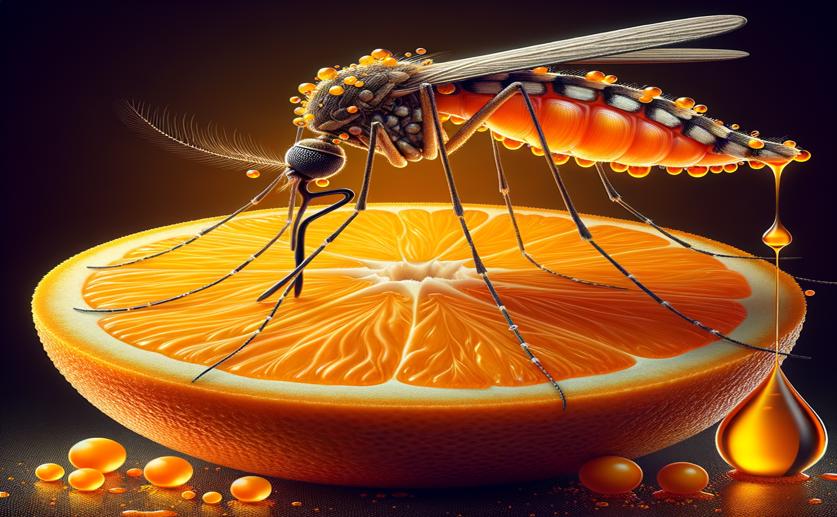
How Orange Oil Affects Mosquito Egg Laying
Jenn Hoskins
15th May, 2024

Image Source: Natural Science News, 2024
Key Findings
- Researchers at Instituto Oswaldo Cruz (Fiocruz), Brazil, studied the impact of yeast-encapsulated orange oil (YEOO) on the egg-laying behavior of Aedes aegypti mosquitoes
- YEOO particles strongly deterred mosquito egg-laying within the first 72 hours, showing a significant repellent effect compared to water
- The yeast encapsulation of orange oil enhances its repellent efficacy, likely by protecting the active ingredients for a more consistent release
References
Main Study
1) The impact of yeast-encapsulated orange oil in Aedes aegypti oviposition.
Published 14th May, 2024
https://doi.org/10.1371/journal.pone.0301816
Related Studies
2) Contemporary status of insecticide resistance in the major Aedes vectors of arboviruses infecting humans.
3) Alternative strategies for mosquito-borne arbovirus control.
4) Efficacy and safety of repellents marketed in Brazil against bites from Aedes aegypti and Aedes albopictus: A systematic review.



 18th March, 2024 | Jenn Hoskins
18th March, 2024 | Jenn Hoskins